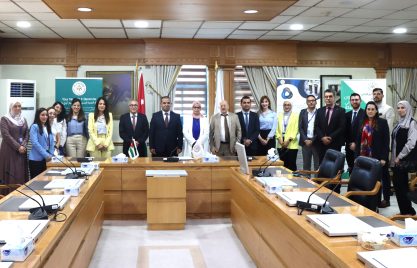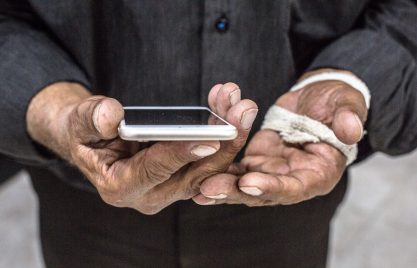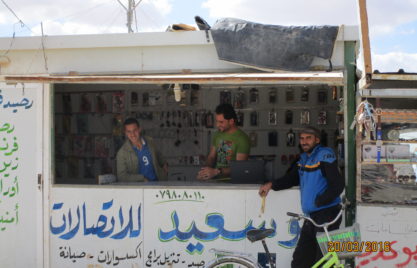Development and Employment Fund director, HE Abdullah Al Freij, announced that the Fund through its lending programmes contributed to more than 4,000 new jobs in Jordan during the first third of 2016. It did so by reaching out to the rural, young or female low-income population, which particularly suffer from financial exclusion and unemployment. A risky, yet promising endeavour.
In the first four months of 2016, the development finance institution funded a total of 2,152 projects for productive purposes, contributing to the generation of more than 4,000 jobs in sectors such as in tourism, trade, services, and food processing, said the director in a recent statement. Among the funded projects, 53 % are in rural areas such as Karak, Ma’an, Tafileh, Mafraq, Madaba, Jerash, and the Jordan Valley. Around 28 % of the borrowers are young adults –with some sort of post-secondary education– while the total loans given to 18-40 year-olds account for 64 % overall. Women make up two-thirds of the DEF’s client base.
With the DEF having received the Award for Excellence by his Majesty King Abdullah II bin al-Hussein earlier this year, the announcement reflects its second major achievement after the fund, with technical assistance of GIZ, started to put serious efforts into its business re-engineering in 2015. Having made a bold move in reaching out to the unbanked, the DEF is now yielding tangible results in local economic and social development in Jordan.
A major milestone in the Fund’s journey towards excellence has been its revitalizing 2016-2020 business plan, which was endorsed by top management last year. In alignment with the national microfinance strategy, the plan established a road map towards better performance in microfinance and towards championing equal and broader access to financial services through outreach to poverty pockets and rural areas with the support of the German Cooperation and the EU. It laid the path for the organizational restructuring and the revision of its funding programmes for clients and business partners. Above all, the DEF acknowledged that its business as a financial institution is based on taking risks and that the successful handling of that requires everyone in the organization.
In the light of the country’s financial access and employment challenges, Mr. Freij’s announcement comes as good news. Greater access to finance is associated with social stability, economic well-being and employment generation. Yet, three-fourths of adults in urban and rural Jordan are unbanked (Global Findex). As MFMR reported earlier, the youth, women and the poor face the most severe gaps towards better financial and thus occupational perspectives (see ‘Mind the Gap’). Only nearly one in eight young adults, one in seven women, and one in seven Jordanians from the poorest 40 % segment use formal financial services. With the bulk of the population being below the age of 30, unemployment rates among the youth are comparably higher and pose a major challenge.
Improving the financial and the occupational perspectives of people and businesses is why the GIZ MFMR programme supports its national partners creating an enabling policy and regulatory environment and infrastructure for microfinance – with a growing evidence base. Using DEF’s latest jobs-to-loan ratio for the first quarter as a simple multiple, the most recent data from the microfinance sector, and assuming –for the sake of simplicity– a similar share of productive loans across all providers based on sector experience, the Jordanian MFIs have approximately contributed to employment effects of around 60,000 in Q1/2016.
The story of DEF showcases only one example that a committed leadership, a clear strategy, and effective, prioritized change measures accompanied by quick wins are needed on a journey –at times on a stony road off the mainstream– towards bridging financial and economic gaps where they are most severe. This holds true for both financial policy makers and market players that cater for a more prosperous Jordan. And, the GIZ MFMR programme will further support its partners in this endeavour. As MFMR Jordan’s team leader Thomas Rahn puts it: “Keeping the sector running and growing, strengthening it and ensuring outreach and client orientation means a direct effect for the wellbeing of thousands of Jordanians from all corners of the Kingdom.”
By Atilla Yuecel
The author would like to thank Sahar Nayef Al-Yousef for her outstanding efforts and excellent cooperation that moved forward the DEF’s mission.



